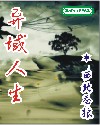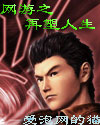人生之钥-第2章
按键盘上方向键 ← 或 → 可快速上下翻页,按键盘上的 Enter 键可回到本书目录页,按键盘上方向键 ↑ 可回到本页顶部!
————未阅读完?加入书签已便下次继续阅读!
In the short time he’s been with us; he’s known nothing but pain。 Yet some secret memory is keeping him amused; giving him the courage to take on this life; knowing the suffering it contains。
So – life is a journey; a hazardous voyage of discovery; and we must negotiate our passage past adversity and trauma; undaunted like a stream rippled by jagged rocks on its steady descent to the sea。
But it’s easy to lose heart; especially when you are caught in the bewildering limbo between the death of the old and the birth of the new。
That’s when we have to remember Phoenix; who rose; time and again; from the ashes of the past。 Take fort from the knowledge that we have bypassed the greatest peril of all: that of stagnation。
The ancients looked on each crisis as a blessing: a liberation; the enforced breaking of new ground。 Favourable to them was anything that helped our progress from darkness to light。
There are even those who claim that extraordinary afflictions are not the punishment for extraordinary sins but the trial of extraordinary graces bestowed on a favoured few。
Looking back; you may well agree that some of your worst experiences did in fact carry within them the seed of something good。
Relish the shadows you leave behind。 They add depth and definition。 For expansion; though; look forward: into the dazzling new dimension of the unknown。
You’ll see that there are no endings in life。 Only beginnings。
Childhood 童年(1)
还记得儿时的你是一个怎样的人吗:严肃、有责任感的?随遇而安的?贴心温柔的?极其活泼、喜欢疯跑的?还是一个时常爱拽着妈妈衣角的胆小的小家伙呢?
我的童年,就像是一只趴在墙上的苍蝇:观察着、聆听着、审视着周围的世界——有些人很好,让人舒服,他们温暖而友善,总是带给人纯净的快乐;而有些人则让人不安、迷惑,他们虚伪做作,充满敌意和轻蔑。
由于无法确知生活的本来面目,我始终就这样一个人观察和思索着,从未与任何人分享。
如今,较之当年,尽管自己少了些困惑,学会了同情和体谅、宽容和容忍,但我仍旧是墙上的那只苍蝇。
不同的是,经过多年的体验,我已经有了足够的自信来将我的想法表达出来,并且鼓足勇气以这种方式与大家分享。
随着成长,我们总是会不断变化,以应付成年人不得不去面对的压力,不管是在个人生活中还是在工作上,都扮演着一个被世人期望的角色。这是社会设定的标准,它迎合了人类本性中对发展和成熟的渴望。
然而,我们最初的天性仍旧没有褪去。与其与童年时的自己保持距离,我们不如好好珍视自己儿时显现出来的那些本性。
只要运用恰当,即使是在成人的世界中,仍旧会有它们的一席之地。
早年的记忆由于过于诱人,往往都是带有欺骗性的。就好像在一个孩子的整个情感经历中,快乐总是占据了主导地位。
这种只愿意承认童年时光美好的天真幼稚的倾向,或许是人类一种自我保护的机制,人们用它来建起一道壁垒,防御未来道路上的种种困难。
又或者,这是由我们自己创造出来的童话的一部分,它更多的是关于我们自己而非童年。
即使如此,童年的记忆还是会从某些地方冒出来。
我记得——或者说是我认为我记得——自己躺在婴儿车中,被推着穿过森林,我抬头看着高耸入云的杉树,那茂密的绿叶伸向湛蓝的天空,穿过棉絮一样的白云。鸟儿在歌唱,小溪在低吟,空气中充满着泥土和松子的芬芳。
回忆的近处,是妈妈的脸,她的眼中充满悲伤和迷茫。我大声叫她,她对我笑了笑,我也对妈妈笑了笑。我们都很快乐。
甜美的回忆中,妈妈在深夜把我从摇篮里抱起,放到她的床上,我们蜷在了一起。我在她温暖的臂弯中睡去了,被她像泰迪熊一样紧紧地抱着。
这种感觉令我备感安慰。
“但我的童年的确是快乐的!”当我对一个男人暗示他的慢性健康问题可能源于童年的某种痛苦经历时,他大声地对我喊道。
我进一步小心地试探着他的底线:“但是,你妈妈过世得那么早,而且没有父亲在身边,这样的童年一定是很难过的。”
“哦,我不觉得是这样,我很幸运能有一个姑妈收留我,她家真是一个好地方。她对我非常好。”
“嗯,她的丈夫可不大好吧,我听说他经常醉醺醺地回家,打你和你的姑姑。”
“有这样的事。但我也就在那儿待了3年。直到我姑妈(精神)崩溃,我就被送到了收养所。”
“那种感觉是怎样的呢?到一个举目无亲的地方生活?”
“那时候我已经不小了,可以去应付这些了。那里的哥哥们都很好,嗯,至少有一些还不错。”
我沉默了,并没有说起收养所中有些工作人员后来由于骚扰儿童而被送进监狱的事。我想,我没有权利去打破那道只有作为当事人的他才愿意去打破的围墙。
“看这儿!”我听见一个母亲对她的孩子们说,“多漂亮啊!”“哦!”孩子们也叫了起来,“太好看了!”
而有些时候,也经常会听到这样的对话——“小心,危险!”“噢,帮帮我!”孩子们叫喊着,“这太危险了,非常危险!”
年复一年地,这样的事情总是在循环往复。“这个东西好,那个不好。这个招人喜欢,那个令人讨厌。”孩子们吞咽了妈妈说的每句话,几乎没有时间去咀嚼,甚至连自己看上一眼的时间也没有。
她甚至可以指着一个黑色的水壶,然后告诉孩子们那是白的。然后孩子们就一齐说道:“哦,是呀,真的很白。”多么顺从的好孩子呀。
看着这些情形,我有时很想喊出声来:“天啊,别相信任何你听到的事!那个壶根本不是白的。用你们自己的眼睛看看吧,靠你们自己的判断力去辨别吧!”
但是,我当然没有喊出这样的话。那不是我该做的事。我所能做的,就是希望看到有一天,这些孩子能够有足够的条件去打破外在环境的束缚,建立他们自己的真实世界。
直到他们三十多岁时,这种希望才变成了现实。
我长吁了一口气。
她们的母亲终于被“推翻”了。
那是8月中美丽的一天,我6岁生日后的第5天。
我被带到一个花园里玩。我的祖母因为胸口疼躺在了地上。 电子书 分享网站
Childhood 童年(2)
她不常生病。我祖父的心脏不是很好。
我无精打采地在秋千上来回荡着,觉得很孤单。我希望能有人陪我玩。
突然,我看到了我要的人——我的祖父,他下班回来了。“爷爷!”我欢快地喊着,“快来推我一把!”
他的脸突然间变得煞白,我从没见过他那种表情,“你不该出来玩。”他粗声地对我说,好像我做了不该做的事。
“但是,”我想告诉他我只是做了大人告诉我的事情而已。“快下雨了。”他突然说。我抬头困惑地看着晴朗的蓝天,一点儿云彩也没有。
“跟我走!”他的声音中透着一丝绝望。
当我们一起上楼梯时,他抓着我的手,紧紧地抓着,好像需要什么东西支撑似的。我似乎被某种预兆紧紧地抓着。后来,我才意识到,那一刻,代表了我童年的终结。
What were you like as a child? Serious; responsible? Happy…go…lucky? Sweet…natured? Hyperactive? A playground bully? Or a timid creature clinging to your mother’s skirt?
I spent my childhood as a fly on the wall: looking; listening; taking in impressions of the world around me。 Some were awesome; reassuring: warmth and kindness; glimpses of pure joy; others worrying; confounding: falsehood and pretensions; spite; aggression and scorn。
Uncertain what to make of it all; I kept my observations and reflections strictly to myself。
Today I’m still the same fly on the wall; though somewhat less bemused; having taken on board some vital lessons of sympathy and passion; tolerance and forgiveness。
Also; over the years I have acquired enough confidence to articulate my thoughts and; at length; summoned the courage to share them this way。
We’re tempted to change as we grow older; in response to adult pressures: roles we are expected to perform; personally; professionally; standards set by our contemporaries; not forgetting the natural urge to develop and mature。
But our basic disposition remains the same。 And rather than distance ourselves from what we were as children; we should take good care of our original equipment。
As long as it’s put to good use; there will always be room for it in the adult world。
Early memories can be deceptive; in that they are usually quite appealing。 As if; in the whole range of emotions experienced by a young child; pleasure is the main one to register。
This innocent; infantile inclination to acknowledge only the positive may be a protective mechanism designed to build up our morale as a bulwark against difficulties ahead。
Or else these impressions are part of a myth created by ourselves; saying more about us than about our childhood。
Even so – they have to emanate from somewhere。
I recall – or believe that I recall – lying in my pram; being wheeled through a forest; watching high above the sun…lit tops of giant fir…trees standing out deep green against a clear blue sky dotted with cotton…wool clouds。 Birds are singing; brooks are babbling; the air has the fresh tang of earth and conifers。
Closer to; my mother’s face: her eyes sad; lost in the distance。 I call out to her; and she smiles。 I smile back。 Now we are both happy。
And I have a cosy recollection of her in middle of the night; ing to lift me out of my cot; taking me to her bed; where we curl up together。 I go back to sleep in her soft warm embrace; clutched by her like a teddy bear。
Giving fort; though I know nothing about grief; have no way of prehending the meaning of despair。
“But I had a happy childhood!” protested the man; to whom I’d tactfully suggested that his chronic health problems might be somehow related to the traumas I knew had overshadowed his early years。
We were close enough for me to gently challenge his assertion: “But with your mother dying so early… And not having a father…That must have been difficult。”
Childhood 童年(3)
“Oh I don’t know… I was lucky to have an aunt who took me in。 That was a lovely place。 She was very good to me。”
“Well her husband wasn’t。 I’ve been told that he used to e home drunk and beat both you and her。”
“These things happen。 And I was only there for three years。 Until my aunt had her breakdown and I was taken into care。”
“So how did that feel? Ending up in a home with no one




